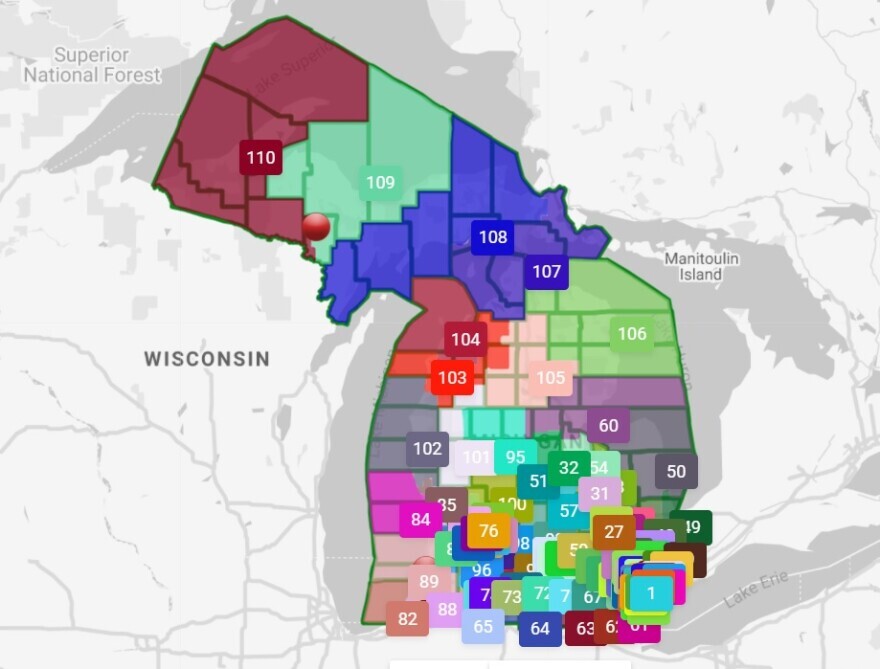The Michigan Independent Citizens Redistricting Commission voted Thursday to appeal a recent loss in federal court.
That ruling requires over a dozen metro-Detroit state House and Senate districts to be redrawn, reasoning that race played a predominant -- and unconstitutional -- role in their initial drawings. The commission is asking the court to pause the effect of that ruling pending its appeal.
The question of whether to appeal the ruling came up at the commission’s December 28 meeting, but not enough members were present to vote on a motion.
At the time, commission attorney David Fink strongly cautioned against discussing the merits of an appeal in an open meeting.
Before entering a two-hour closed session, Commissioner Rebecca Szetela and others spoke against an appeal.
“I believe we’ve spent over $5 million in legal fees at this point. A large chunk of that is defending this litigation. I think we’ve spent enough of the taxpayers’ money and spending more money I just don’t think is appropriate,” Szetela said. “I’d rather just see us redraw maps and be done with this litigation.”
At Thursday’s meeting, the commission picked things back up and swiftly voted to appeal. The motion passed by a vote of 8-1, with two members abstaining.
It was the first vote for three new commissioners who were named to the group Wednesday and sworn in Thursday.
In the meantime, however, the commission still needs to comply with the court’s decision.
That includes replacing its previous federal Voting Rights Act expert, who quit last week. The law firm that represented the group in trial, BakerHostetler, was picked.
During discussions, Fink, who works for a separate law firm, was blunt about the commission’s options, given its next court hearing scheduled for Friday at 1:30 p.m.
“If you don’t have VRA counsel on board by tomorrow at 1:30, the chances that the commission will be able effectively to keep control or to have control of the mapping and districting process during this remedial phase is far less likely,” Fink said.
Replacing the Voting Rights Act counsel was among the requests the court made ahead of the upcoming hearing, at which both sides of the case are supposed to work out how to fix the maps in time for future elections.
The plaintiffs have asked for an expert, called a special master, to redraw districts for the commission. The Commission is looking to maintain primary authority during the redistricting process.



